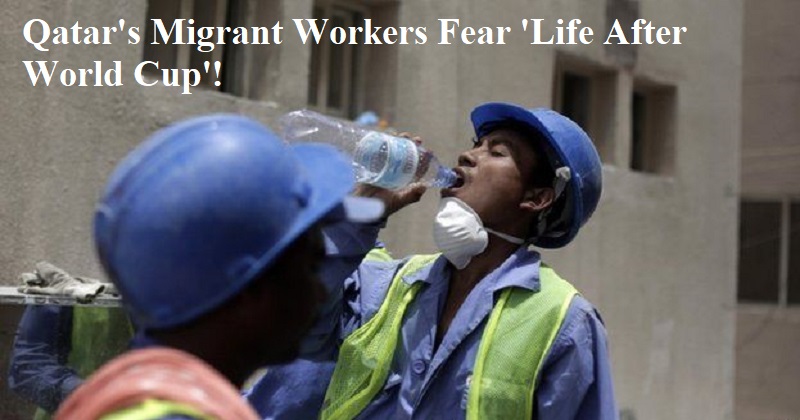
Along with a large number of other South Asian employees, Rasheed sang and danced in celebration of Argentina’s World Cup victory while thinking about two significant milestones. International Migrants Day fell on Sunday as well. They were chanting ‘Messi, Messi, Messi’ at a section of Souq Waqif, the main market in Doha, Qatar, where throngs of foreign supporters have congregated during the World Cup.
Rasheed, who wore a t-shirt with the word ‘rights’ scrawled across the front, claimed that at first they mocked us as ‘fake fans,’ but that they have now come to accept us. Out of concern for his Qatari employers’ possible repercussions, he was afraid to reveal his entire name. Many of Qatar’s eight stadiums were constructed by labourers from India, Bangladesh, Pakistan, Nepal, and Sri Lanka, who also helped to fill them with fans for the games. India was a major purchaser of tickets.
But just before the competition began, photographs of the construction workers who erected the Lusail stadium, the site of Sunday’s final, were torn down from its walls. The 88,000 individuals inside were mainly from other parts of Asia. Shafiq, a fan of Argentina who hails from the Indian state of Kerala, stated, ‘It is quite uncommon that we can come out and celebrate like this. In general, we all remain in the labour zones. Everybody is curious about what will occur following the World Cup’.
Reform ‘commitment’
Since Qatar was given the World Cup 12 years ago, labour rights have been a heated subject in the country. Rights organisations claim the death toll from Qatar’s mega-projects has been underreported and denounce the living circumstances of the migrants who make up more than 80% of the country’s 2.9 million inhabitants. Even the Gulf state’s closest friends have asked for guarantees that recent changes will remain in place.
The US ambassador to the UN urges Qatar to show commitment to labour reforms and human rights beyond the World Cup. Linda Thomas-Greenfield met with Qatar’s Foreign Minister Mohammed bin Abdulrahman Al Thani. Qatar has faced pressure over conditions for women and the LGBTQ community. It has pointed to changes over the past five years that have made it a leader in the Gulf region.
Rights groups have called for a special fund to compensate workers who died on Qatar’s monumental building projects. FIFA has promised to give details soon of a legacy fund for this World Cup that it says will help workers in other countries. No official events were held for the UN day for migrants however and rights groups have doubts about the future.

Post Your Comments